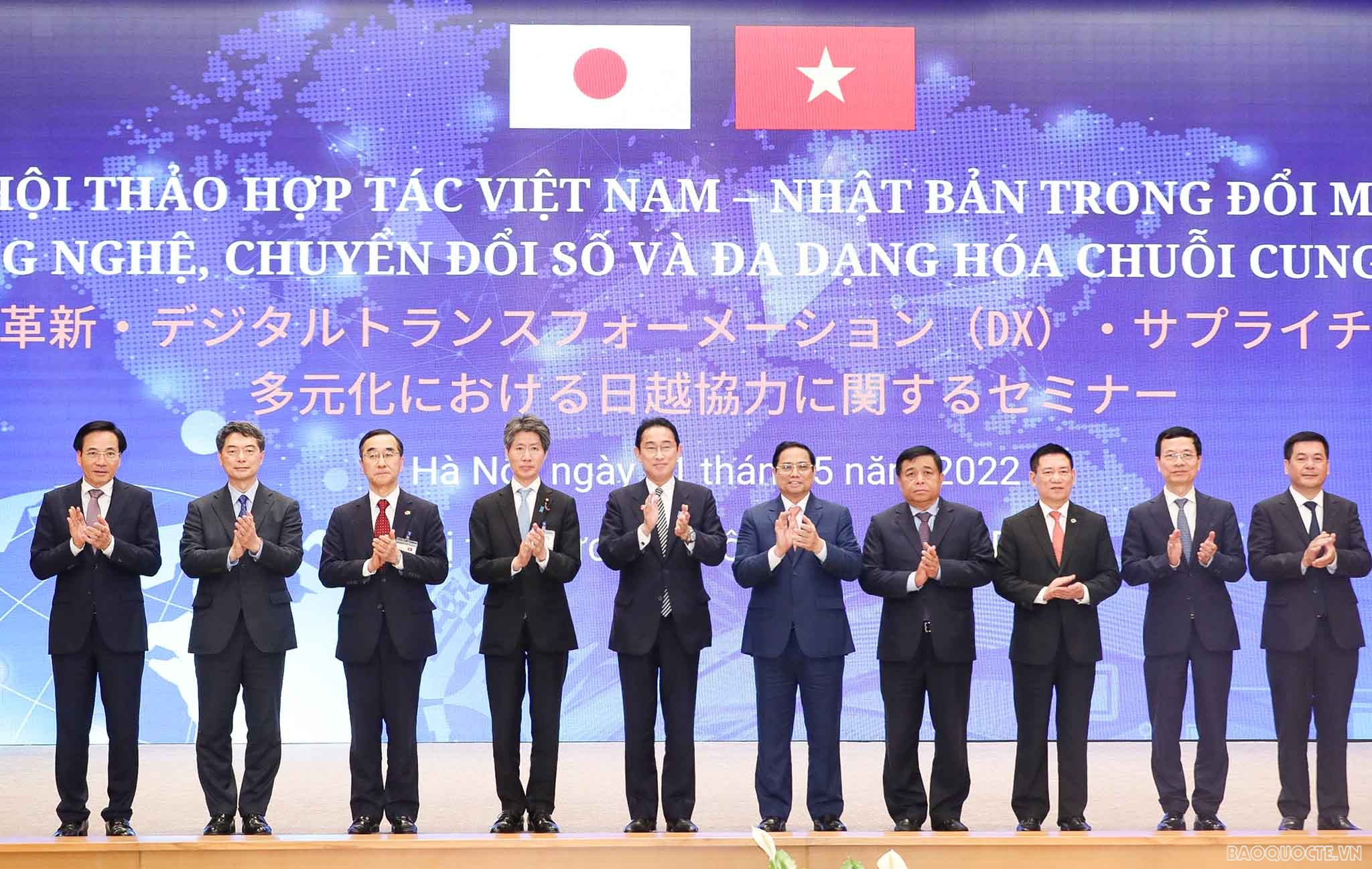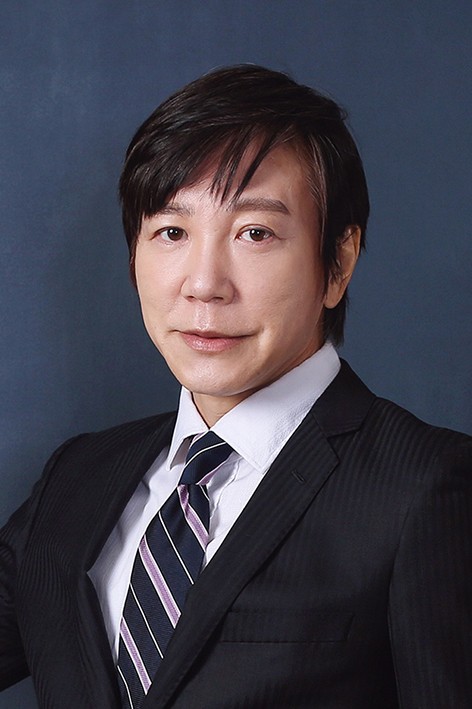
Japan-Viet Nam cooperation: Limitless possibilities and multi-layered activities
Latest
 |
| Cooperation possibilities for Japan and Viet Nam are limitless, said Japanese Prime Minister Kishida Fumio at a seminar on the two countries’ cooperation in technology renovation, digital transformation and supply chain diversification on May 1. The Japanese Government leader attended the seminar during his official visit to Viet Nam, together with his Vietnamese host Prime Minister Pham Minh Chinh. |
Could you please give us some remarks on trade and investment relations between Viet Nam and Japan?
Japan's exports to Viet Nam increased 2.2 times from 2011 to 2021. Japan's imports from Viet Nam increased 1.9 times.
On a cumulative approval basis, Japanese companies' investment in Viet Nam has increased 2.7 times in value in 2021 compared to 2011.
Although serious incidents happened during the period: the Great East Japan Earthquake in 2011 and the Covid-19 pandemic in 2020 and 2021, economic relations are steadily expanding.
The Japan Chambers of Commerce and Industry (Ha Noi, Da Nang, and Ho Chi Minh) has about 2,000 members, the largest in ASEAN.
What are the highlights of Prime Minister Kishida Fumio's visit to Viet Nam and its impacts on the future bilateral economic cooperation?
 |
| Mr Takeo Nakajima, Chief representative of the Hanoi Office of the Japan External Trade Organization (JETRO Hanoi) and vice chairman of the Japanese Chamber of Commerce and Industry in Vietnam (JCCI). |
From an economic point of view, the visit symbolizes the importance of Viet Nam-Japan economic relations. Then-Prime Minister Suga visited in November 2020. PM Chinh visited Japan in November 2021. Now PM Kishida visits Viet Nam while the exit of the new corona is visible.
22 memoranda of understanding (MOU) have been signed, which showed the active investments of both countries. Collaboration in DX, environment, and medical care showed new business trends. The developments of AEON Mall prove the expansion of Viet Nam's retail market in rural areas.
Japan and Viet Nam will cooperate in three initiatives: (a) strengthening the supply chain, (b) promoting DX between companies, and (c) technical cooperation and improving local procurement.
Covid-19 cannot prevent Japanese businesses and investors from choosing Viet Nam as a destination. Viet Nam is still considered one of the best investment destinations for them. What are your assessments of this fact?
According to the JETRO survey on the Japanese companies in 2021, Viet Nam is second to the United States in answering that they plan to expand businesses.
According to MPI data, the cumulative investment from Japan is more than 4,800 investment projects, amounting to 65 billion USD from 1988 to 2022. Japan is a significant investment country, along with South Korea and Singapore.
The number of companies entering the Vietnamese market has increased, and the ratio between manufacturing and non-manufacturing is about 50% each.
Japan's excellent products, technologies, and agricultural products eyed entering the Vietnamese market, expecting to catch the expanding Vietnamese middle and upper-class market.
In addition, Japanese enterprises apply new technology and DX capability to Viet Nam's social problems in collaboration with start-ups.
In short, the activities of Japanese companies in Viet Nam became multi-layered.
What Viet Nam should focus on to remain attractive in the eyes of foreign investors in general and Japan in particular?
According to the JETRO survey last year, Viet Nam's management issues include rising wages, labor shortages, uncertain administrative procedures, and low local procurement rates.
Regarding human resources, I hope that Vietnamese technical intern trainees and highly-skilled human resources will return to Viet Nam and play an active role in Japanese companies in Viet Nam.
Viet Nam is an essential base for responding to global supply chain risks for Japanese industries. But Viet Nam also caused supply chain disruption during the pandemic.
What is the role of Viet Nam in the business/investment activities and supply chains of Japanese companies, and how would this trend evolve in the future? What is JETRO's plan to further contribute to such cooperation?
Regarding the supply chain diversification, JETRO follows up on the progress and obstacles of 39 projects in Viet Nam adopted by the METI subsidy, which JETRO serves as secretariat.
On this visit to Prime Minister Kishida, JETRO has signed two MOUs; (1) Promote investment in areas that contribute to the direction of Viet Nam's economy with the Foreign Investment Authority (FIA) in green growth, the digital economy, and Industry 4.0.
(2) Promote matching between Japan Chamber of Commerce (JCCI) member companies and excellent Vietnamese start-ups. National Innovation Center (NIC), Japan Chamber of Commerce (JCCI), and JETRO signed the memorandum.
Viet Nam is moving towards a green economy and sustainable growth, targeting net-zero carbon emissions by 2050. How do you evaluate this strategy of Viet Nam? And how can Japanese companies support Viet Nam in this effort?
At the 26th Conference of the Parties to the United Nations Framework Convention on Climate Change (COP26) held in the United Kingdom, PM Pham Minh Chinh aimed to achieve virtually zero greenhouse gas emissions by 2050.
Japan has also experienced pollution problems in the postwar high economic growth.
Environmental issues have become apparent behind economic development in Viet Nam. The Vietnamese government cites environmentally friendly advanced technology as one of the priorities in attracting FDI. It is actively working to balance economic development and environmental conservation.
There is much room for Japanese competitive companies to collaborate with Vietnamese companies.





















